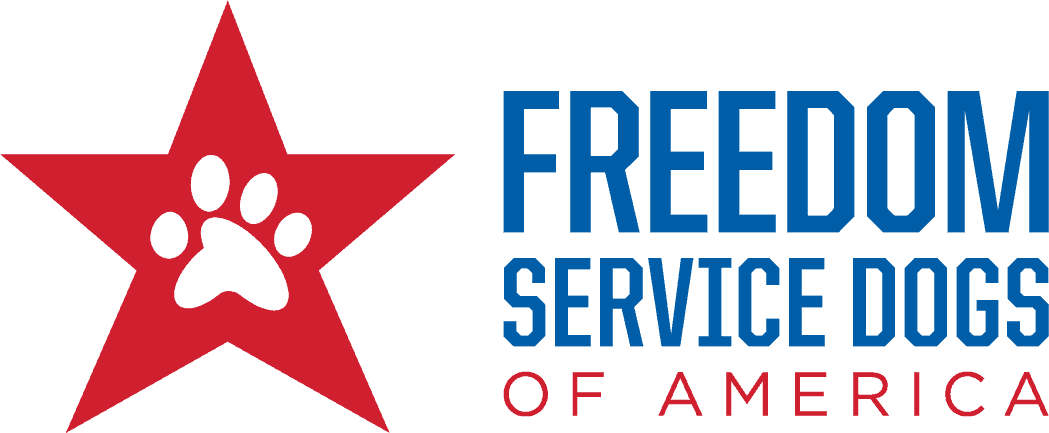The Puppy Pathway to service dog success
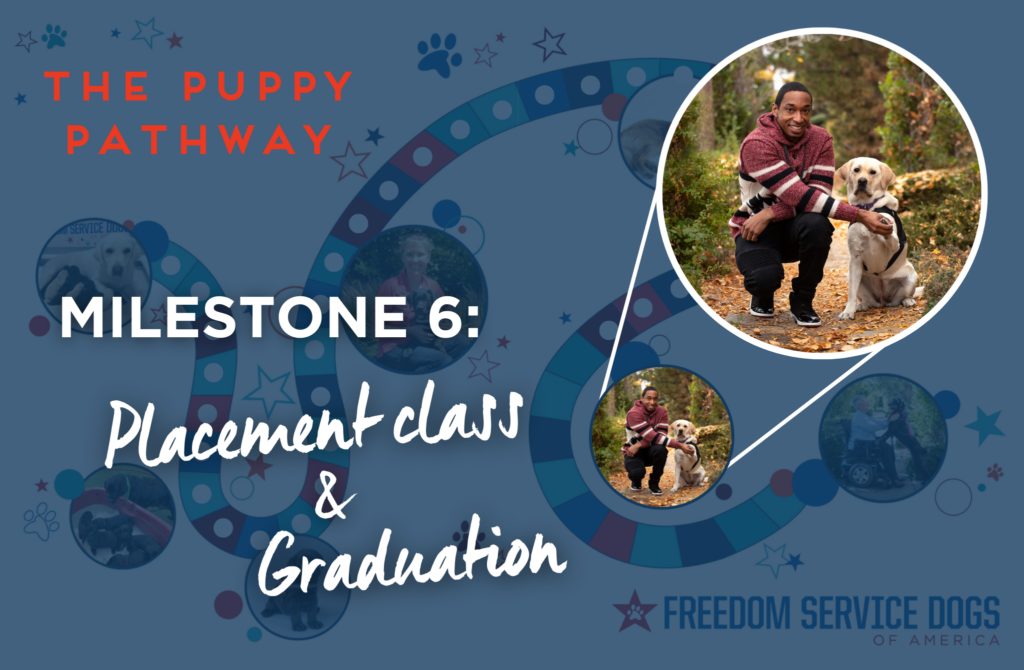
Milestone 6: Placement class and graduation
In this ongoing series, we’re exploring each milestone along the Puppy Pathway, a journey of growth, learning, and rewards for puppies in FSD’s assistance dog training program. This month, we’ll look at Milestone 6: Placement Class and Graduation.
Once our clients have been matched with an FSD assistance dog, they are required to attend a two-week placement class at our training facility in Englewood, Colorado. They arrive with varying levels of experience with dogs; some may have previously had a service dog, some have had pet dogs, and some have never lived with a dog. They have had a single match meeting with their new service dog and have spent a month or so in anticipation of this opportunity to bond with their dog and their fellow handlers, and to learn how to live and work with a Freedom Service Dog at their side.
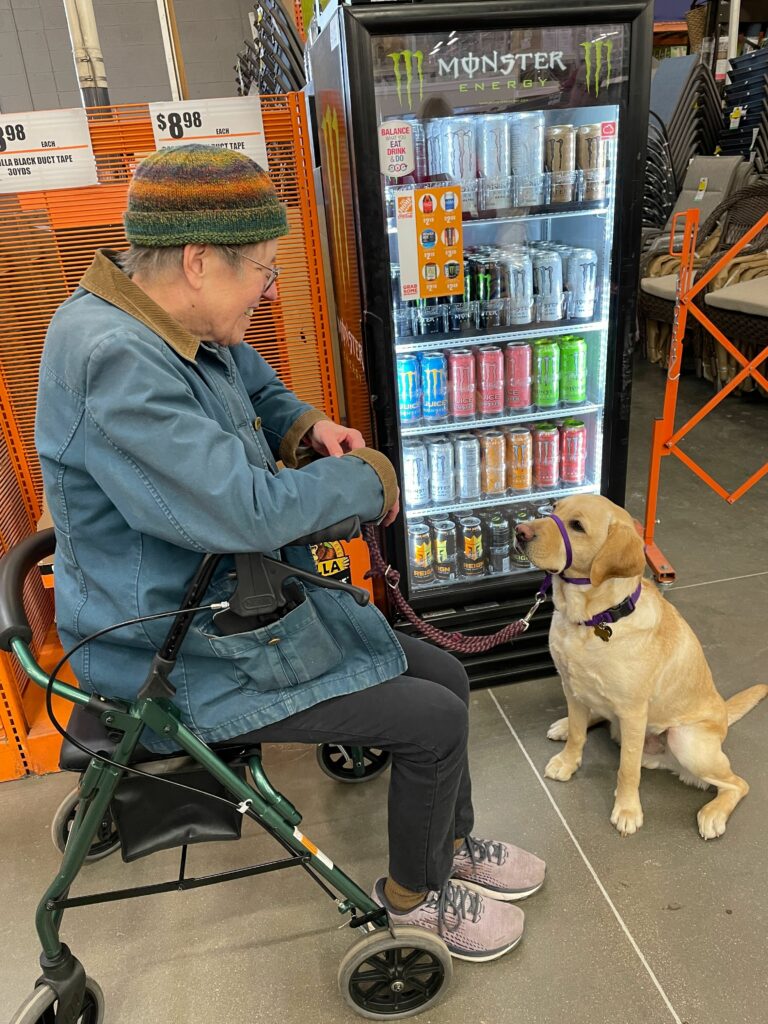
During the first week of placement class, our Client Services and Training staff focus on helping the handlers transition to life with a service dog, as well as helping the dogs transition from working with their longtime trainer to their new handler. Classroom discussions include topics such as how dogs learn, dog body language, how to care for a dog’s medical needs, how to ensure a dog is fed properly and receives adequate exercise, and more. Teams may take outings to the grocery store, Walmart, Home Depot, or a park, depending on the type of training required for the clients in that class. They also work in our training space to learn basic cues, such as Sit, Down, Let’s Go, and Heel/Side, as well as how to walk together comfortably, how to treat and reward the dog, how to load in and out of a car, and other everyday tasks.
This is also a time to listen to our clients’ questions, anxieties, and fears surrounding their life-changing decision to take on the responsibility of having a service dog. Our staff creates a safe space for our clients to express their doubts and misgivings, and while most of the time our clients decide to continue on their service dog journey, there are instances where a client decides that it’s not the right fit or the right time in their life to have a service dog.
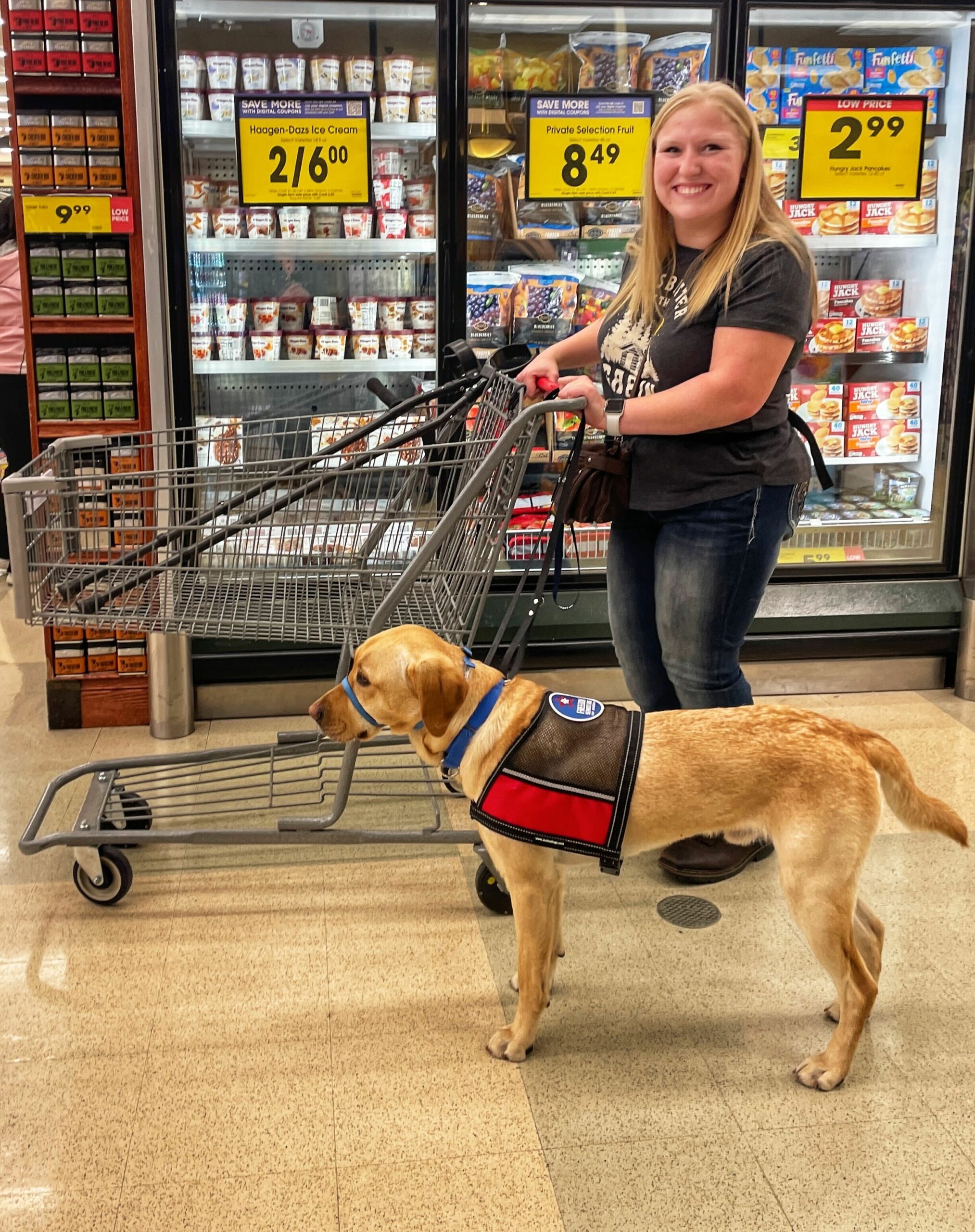
On Thursday of week one, the handlers take their dogs home (or to their hotel room if they’re visiting from outside the Denver area) for the first time. That milestone event is followed on Friday by a long debrief about how things went and troubleshooting by our staff. Then it’s back to their home or hotel for a weekend of relaxing and enjoying their dog until Monday.
Week two consists primarily of handlers and their dogs working closely with FSD staff to learn and practice custom cues designed to assist the handler with their unique needs. For people with mobility challenges, those cues might include tugging off shoes and socks, turning on lights, opening doors, and retrieving items. For our veteran clients, the dogs work on interrupting nightmares and flashbacks by nudging their handler, or creating space around them in crowds to relieve anxiety. For children with autism, the dog may practice lying on the child to provide comforting weighted pressure or nudging them to interrupt repetitive behaviors.
The teams also venture out as a group to locations such as Denver International Airport, a restaurant, and other places to practice how to work and act appropriately in public, including how to handle curious people who want to interact with working service dogs.
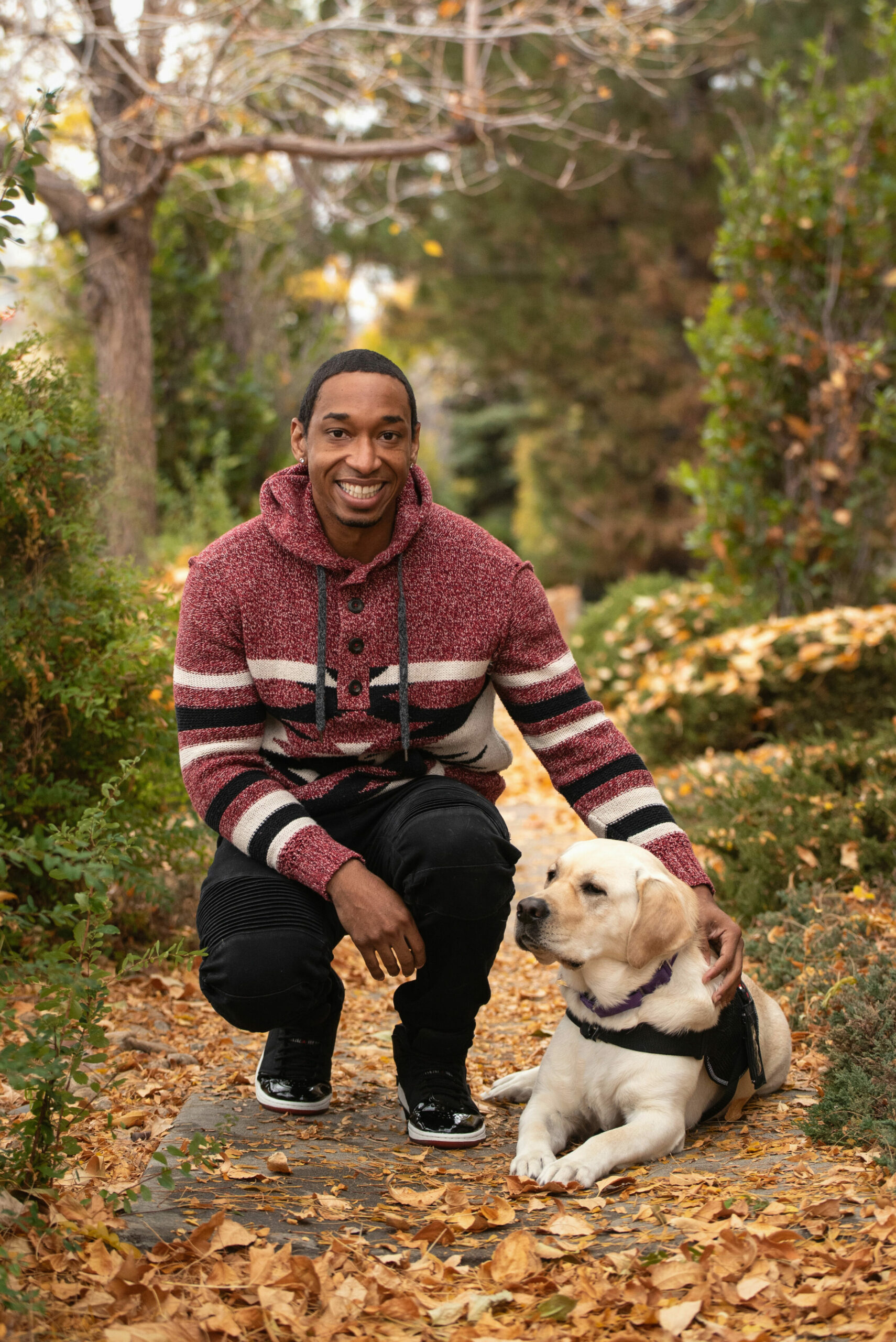
The week culminates with a public-access test that is required by Assistance Dogs International (ADI), the organization that sets standards and provides accreditation for assistance dog organizations. After a dry run at a nearby Target store earlier in the week, our teams return to Target for this test, which determines whether service dogs are stable, well behaved, and unobtrusive to the public, and ensures that the client has control over the dog and the team is not a public hazard.
The test takes approximately 15 minutes with an FSD assessor evaluating each team on specific behaviors, including: Does the dog wait calmly at the door before entering the store? Does the dog remain calm when a stranger or child approaches? Can the dog stay calm while their handler is out of sight for a short time? Can the dog recover quickly from hearing a loud noise without becoming stressed? Can the dog change pace with the handler? Can the dog lie next to dropped food for an extended period without trying to eat it?
Once the team passes the test, they return to FSD for graduation photos and the signing of a contract that states the dog officially belongs to the handler. The handler is required to file monthly reports and an annual report during the first year, and to file an annual report and veterinary report and take a public-access test every two years, to remain certified by Freedom Service Dogs.
Up next: Learn about the free lifetime support we offer to all active FSD teams in the July Pupdate e-newsletter. Subscribe to receive monthly Pupdates!
Contact Erin Conley at econley@
